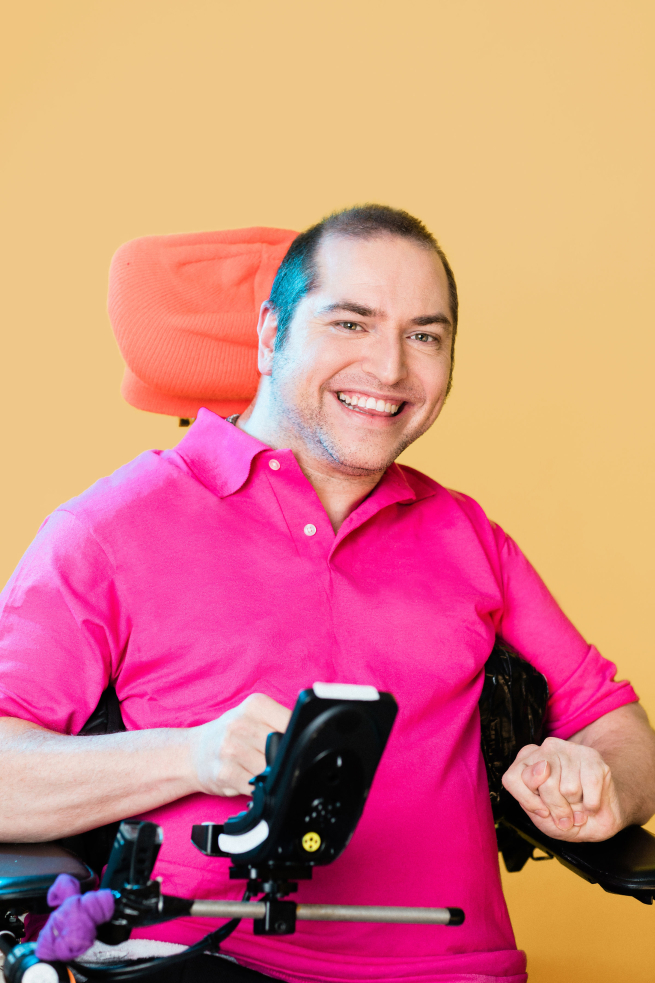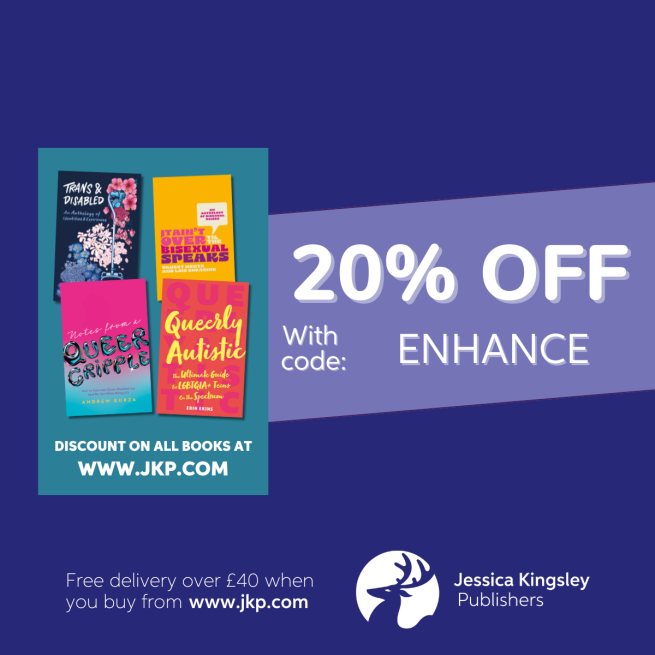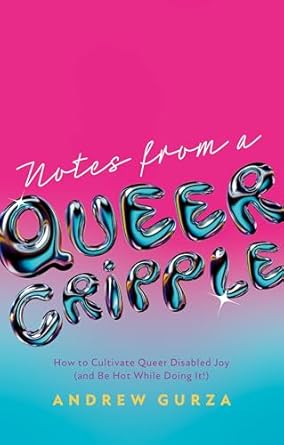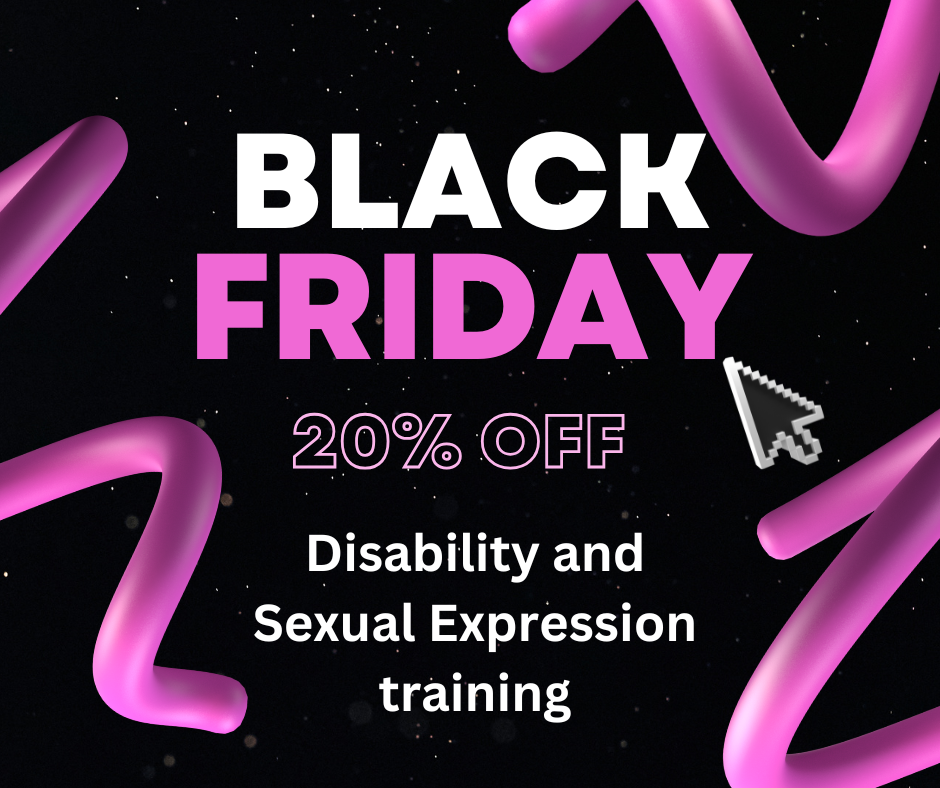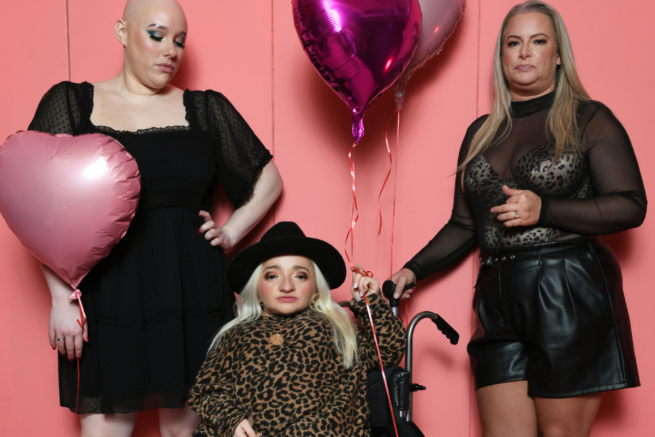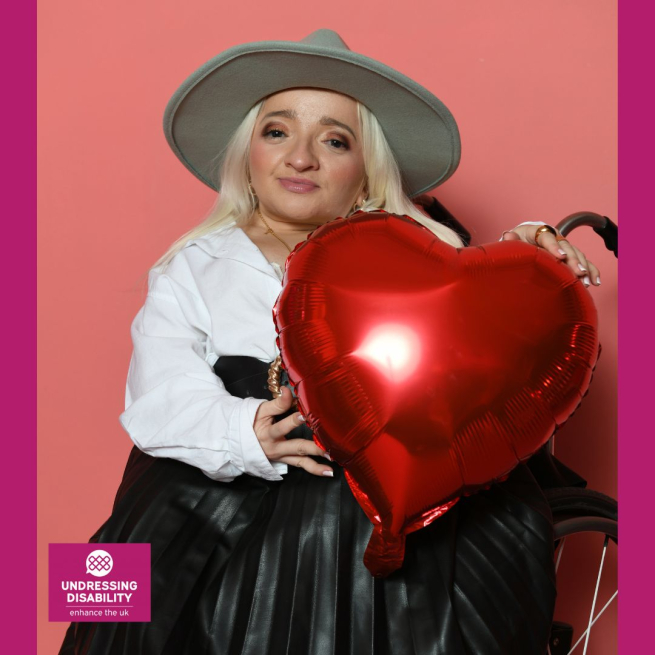Menopause meet up:
We are pleased to announce our next Love Lounge event! We have partnered with the wonderful Vagina Museum in London and the experts at the Menopause Consortium to hold a very special event on October 24th
As part of our Love Lounge events, we will give you the chance to ask the experts anything you want on menopause, body, mind and soul. As well as what this might mean for transgender and non-binary people going through menopause or any menopause and career-based questions.
What happens on the night:
Enhance the UK CEO Jennie Williams will host a panel discussion with our experts before a social event. As part of our social event, you can meet the makers who are shaking up the menopause care industry and secure some goodies and discounts!
There are goodie bags for the first 30 people to enter the event with all proceeds from ticket sales going to Undressing Disability and the Vagina Museum.
The details:
Date: 24.10.24 7pm – 9 pm
Location: The Vagina Museum, 276 Poyser St, London E2 9RF
Click here to go to the Vagina Museum website
Meet the experts
We’ve combined expert doctors from the Menopause Consortium, transgender menopause researchers from the Nottingham Transgender Health Centre in Nottingham, employment and wellness experts to make an incredibly knowledgable panel.
Dr Liz Tatham: systemic physiotherapist at Menopause Consortium
Liz is a highly experienced Systemic Psychotherapist with over 30 years of experience working in the NHS and the last 10 years as a private psychotherapist. Her passion for mental health began when she trained as a Psychiatric nurse many years ago. However, it was not until she completed her Systemic Psychotherapy training in 2001 and went on to tutor on the same course at the University of Birmingham that her career really took off.
Although Liz enjoyed teaching, she was keen to return to clinical practice, and so she began working independently. Her experience has been diverse, having worked with families and individuals in various settings, including within the context of mental health, such as the Nottingham Eating Disorder team. It was during this time that Liz became increasingly interested in hormonal health and early-onset menopause.
Dr Joanne Hobson: Clinical lead, director and menopause specialist at Menopause Consortium. MBBS, DRCOG, BMS Menopause Specialist.
Dr. Joanne Hobson is renowned for her expertise in menopause care and advocacy for women’s well-being. As a British Menopause Society Menopause specialist and a member of the Institute of Psychosexual Health, Dr. Hobson has dedicated her career to revolutionising menopause care and reshaping healthcare professional education.
With a background as a General Practitioner, Dr. Hobson embarked on a transformative journey that led her to become a leading force in community gynaecology and menopause care. Over the past 15 years, she has served both in the National Health Service (NHS) and her private practice, touching the lives of countless women with her empathetic and evidence-based approach.
Dr. Hobson’s commitment to education is as steadfast as her dedication to patient care. She is a trainer for the British Menopause Society and previously was a Principal Trainer with the Faculty of Sexual Reproductive Health (FSRH) in menopause care. Through these roles, she has contributed to raising the standards of menopause care by equipping healthcare professionals with the latest insights and best practices.
Dr. Joanne Hobson’s legacy will be one of empowerment, education, and unwavering dedication to women’s health.
Dr Carrie Martin: pelvic health physiotherapist at Menopause Consortium
Carrie is a highly skilled and compassionate Pelvic Health Physiotherapist dedicated to improving the lives of women through specialised care.
Carrie’s journey in the field of physiotherapy began at The University of Nottingham, where she obtained her BSc Hons degree in Physiotherapy in 2012. After graduating, she embarked on a career in the National Health Service (NHS) at Nottingham University Hospitals. Over ten years, she honed her expertise in various aspects of physiotherapy while working alongside renowned clinical specialists, therapists, and consultants.
During her time at Nottingham University Hospitals, Carrie developed a deep interest in pelvic health. Recognizing the profound impact that pelvic floor issues can have on a person’s quality of life, she dedicated herself to expanding her skills and knowledge in this specialized area. Her determination to provide the highest standard of care led her to transition into the private sector, allowing her to extend her services and reach more women in need.
Carrie’s expertise in pelvic health encompasses a wide range of conditions and concerns. She has successfully treated numerous women experiencing bladder problems, bowel problems, prolapse, pelvic floor dysfunction, sexual dysfunction, and the challenges of recovering from childbirth. Additionally, she offers guidance and support to women navigating the menopause.
Click here to visit the Menopause Consortium website
Margarita Bennett: wellness, Clinical Massage Therapist, Cranio Sacral Practitioner & pre/postnatal Specialist.
Margarita is a Clinical Massage Therapist, Cranio Sacral Practitioner, Pre and Postnatal Specialist, and Psychic Healer. With nearly two decades dedicated to understanding the human body, she has supported countless patients on their healing journeys.
She works with a huge spectrum of individuals from Depression to Cancer, from Fibromyalgia to post-operative, from fertility, prenatal or postnatal issues to Menopause. People of all ages and genders. She runs a successful practice in East Sussex, England, and she is also a wife and mother of two teens.
Claire Holland: Deputy CEO of Enhance the UK / Undressing Disability
Claire Holland has previously worked in Education, social care and for various charities in advice and advocacy roles. Through her role at Enhance the UK, Claire has a wealth of experience of training and consulting with organisations on topics such as inclusion, the equality act, legal duties and disability awareness.
You can click here to visit the Enhance the UK website
Dr Nat Thorne HND, BSc, MSc, Education, Evaluation and Research Associate at the Nottingham Centre for Transgender Health
Dr Nat Thorne started their career and an LGBTQ+ journalist, freelancing for Diva, The Pink Paper and national press before becoming the editor of Fyne Times magazine. During their 16 years as a journalist, they also studied for a BSc in Psychology and took the big step of leaving their editorial career to come to the University of Nottingham where they completed their Masters and their PhD.
Their thesis examined mental health in non-binary people and how language has a negative influence on this. After graduation, they joined the Nottingham Centre for Transgender Health as a Research Lead where they have been involved in research relating to health disparities for trans people and menopause in the LGBTQ+ population. Nat was also the founding Chair of a local support charity called Notts Trans Hub.
Click here to visit the Nottingham centre for Transgender Health
Meet the makers
Meet the meno-makers: There are so many wonderful companies out there making products designed to make our menopause easier. We couldn’t resist inviting some of the best in the business to come and share their expertise with you.
Rocks Off Ltd is the leader in their field and recently launched (in collaboration with us!) the amazing Quest range of accessible sex toys. Rocks Off has pioneered some of the biggest changes in the sex toy market such as the world’s first liquid silicone, a hands-free C-shaped product.
Rocks Off will bring the incredible Quest range to the event where you can talk to the experts about all things sexy toy-related. They will also be sharing some of their new range with us.
Click here to visit the Rocks-Off website
About the Menopause Consortium
Dr. Hobson together with Sally Kitchen, created The Menopause Consortium a visionary initiative that is transforming menopause care on multiple fronts.
Driven by their shared vision, Dr. Hobson and Sally Kitchen have laid the foundation for a new era in women’s health, driven by the Three Pillar approach – Patient Care, Education for Healthcare Professionals, and Corporate Training.
*Thank you to Auris Ear Care!
Auris Ear Care is the UK’s first CQC regulated on demand ear care clinic. They provide ear wax removal, ear infection treatment and ear foreign body removal services throughout the UK. Thank you for your generosity and we look forward to receiving our branded backdrop.



